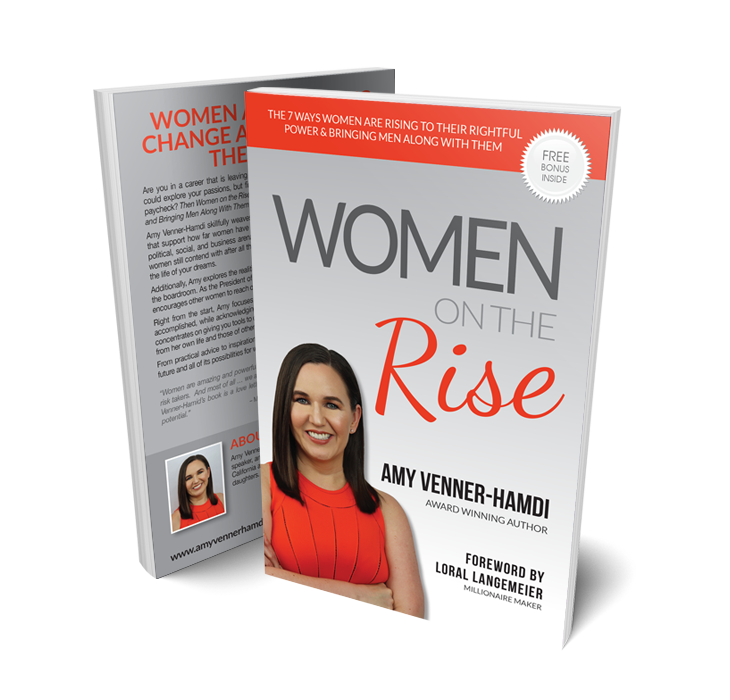Where Are Women Now?
While it is true that women still need to make strides when it comes to having a family, without derailing their careers, it is also true that men are benefiting from the advancement of women, because now they can put voice to their own desires. Men are standing up to the idea that they are not merely babysitting but are taking an active role in their children’s lives, both emotionally and physically. Today’s women are bringing men along, and families are benefiting as a result.
However, it does not mean that there are not challenges. Women still hold a small percentage of leadership positions, despite the fact that they are over half of the earth’s population. While many countries have made strides in having female leadership, women have still not tipped the halfway point. According to Pew Research Center, the number of women leaders have grown, but it is still a small number.
Fifty-six of the 146 nations in the world, studied by the World Economic Forum, have had a female head of government or state for at least one year in the past half-century. That equals just 38%. At least 13 additional countries have only had a woman leader for less than a year. Currently, there are 15 female world leaders, and eight of them are their country’sfirst woman leader. In the United Nations, women represent fewer than 10% of the 193-member states. Europe currently leads the way in this regard, but it is clear that there is more work to be done in other nations around the world.
The election in 2016, in the United States, is a classic example of the uphill battle that women face as they attempt to attain top leadership roles in government. As a candidate, Hilary Clinton faced questions regarding her clothes and even her facial expressions. Being accused of having a bitchy attitude was common when Clinton attempted to assert herself. She was also judged on her weight and hair. If she put on a few pounds, this was a source of judgement and even ridicule. Men who put on a few pounds never face this kind of scrutiny. This is still an area where women struggle, as they are trying to find the best combination of their femininity and strength. Too often, a strong woman is defined by derogatory terms, and these terms tend to be used by society to keep women in their place.
Subtle Messages...
As mothers, it seems that we take a crash course in guilt and learn the art of piling it onto ourselves. Yet, in the same fashion, we are teaching our daughters to do the same. Kids learn from what they see, even more than what they hear. They see our frustration, the way we focus on the negative aspects of ourselves, and they absorb that frame of reference. Overtime, they begin to use it on themselves.
Here is a real-life example that I am sure you can relate to: gaining weight. Most of us gained weight when we had children, and if not then, as we aged, our bodies simply didn’t bounce back easily. Our bodies changed from when we were younger, and for many women I know, they didn’t like what they saw in the mirror. Some took on diets, programs, and exercise routines, while others just changed how they appeared in their lives, hiding behind others in pictures and simply trying to disappear. The point is that we all have difficulty embracing the way our bodies change through life, and this message seems to transfer to our children, particularly our daughters as they age.
I want to be very clear here that I believe all women want to live healthy, happy, and productive lives. It takes a conscious effort to break the cycle of talking to ourselves from a place of negativity and failure. That mental framework is very corrosive to your ability to get the best out of every day of your life. Remember the repetitiveness of those 80% of negative thoughts? Can you see how easy it is to fall into a cycle that makes you the harshest critic in your own life? Society ingrains messages that we then use to judge ourselves, becoming one of the harshest critics of ourselves, but then we extend that judgmental attitude to others.
Rethinking the Roles...
Women have become their own worst critic, and their internal dialogue can focus heavily on what they feel that they did not succeed at, instead of the success that they have achieved. It focuses on the negative instead of the positive. You and I are being trained to compare ourselves and our kids to others constantly, and berate ourselves when we do not appear to measure up. This mentality can make difficult situations or circumstances even harder, because you can be so busy beating up on yourself, you fail to notice your strengths and how you have blessed others.
Notice that the question of whether men can have it all never seems to come up. The privilege of these stereotypes is that men can have a family and a career, because their wife or partner is at home handling the family, while he is having the career. Yet this hurts men as well, because it has kept them from being able to dive deeper into their children’s lives and form a different type of bond with them. I want to be clear here that many dads have a great relationship with their children but are often not even considered as the primary contact for the school or the doctor. In a myriad of little ways, men are pushed to the side in their own families because society assumes it is the mom’s job to handle it.


